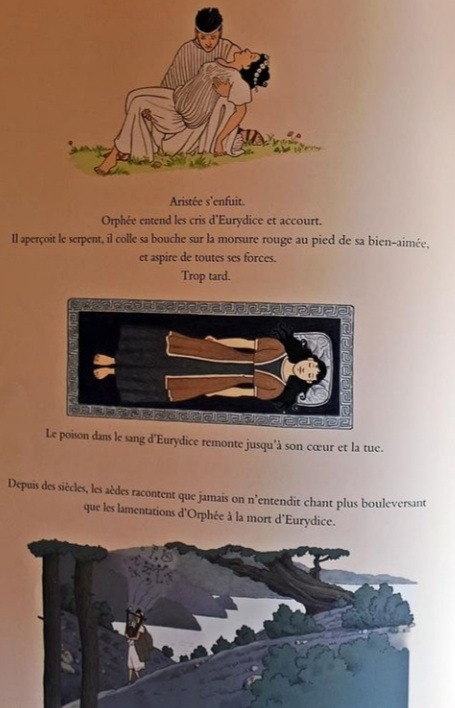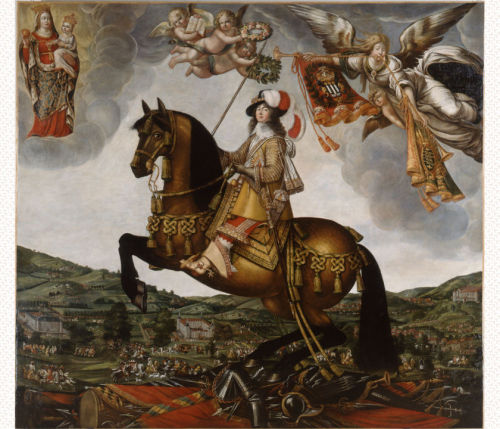#french side of tumblr
When I’m feeling good about my French speaking

vs
When I make an obvious mistake and freeze






Orphée et la morsure du serpent, d'Yvan Pommaux (auteur et illustrateur)
Long story short, I was looking for a way to stream a 1970s French adaptation of Balzac’s Splendeurs et misères des courtisanes. I thought MUBI might have it but that was a dead end. So then I tried the next search result: Madelen, a streaming service for vintage French tv, movie, plays, and documentaries!

So the bad news is it doesn’t have subtitles, but if you speak/understand French, the site’s got a crazy good selection: Arsène Lupin, Nicolas Le Floch (this one’s new, not sure why it’s here but I’m not complaining), Belle et Sebastien, Les Brigades du Tigre, etc.
It’s apparently run by the INA (Institut National de l’Audiovisuel). Gotta say, for 3 euros a month, it’s frankly a steal.
Alors que je pliais du linge en rêvassant, les déambulations aléatoires de mon esprit se sont arrêtées sur cette phrase d’une chanson que je ne connais pas, d’une chanteuse dont je ne connais pas, mais que je me souviens d’avoir vu citer quelque part dans une de ces éternelles controverses sur “la chanson française actuelle massacre la langue oui/non”. “Tu prends tes caleçons sales et tu hors de ma vue”.
(Je tiens à préciser par mesure de précaution que les sous-vêtements que j’étais en train de plier étaient, eux, propres.)
Mon mode linguiste s’est mis en marche et je suis arrivée à la conclusion que l’autrice de cette phrase a, consciemment ou non, pris le mot “hors” pour un verbe. Après tout, il ressemble assez à “sors”, et ce n’est pas un terme qu’on emploie beaucoup dans la langue courante. Je me suis donc dit : et pourquoi pas ? Ce ne serait pas la première fois qu’on crée un verbe à partir d’un mot d’une autre catégorie grammaticale, même si pour les prépositions c’est plutôt rare en français.
Mais imaginez : hortir ( v) – sortir de quelque part précipitamment dans un état de disgrâce.
Je hors, tu hors, il/elle/on hort, nous hortons, vous hortez, ils/elles hortent.
Par ici la hortie !
Après ses propos condamnés par l’ensemble du parti, le politicien a été forcé d’en hortir.
Certains pensent que la cancel culture réprime la pensée en faisant hortir les voix critiques de la conversation.
…
non ? désolée…
VOLTAIRE, philosophe des Lumières
« Il me semble qu’une femme ne doit point sortir de sa sphère pour s’étaler en public, et hasarder une pièce médiocre. C’est le dernier des métiers pour un homme, et le comble de l’avilissement pour une femme. Il y a une certaine dignité attachée à l’état de femme qu’il ne faut pas avilir. Une femme d’esprit dont on ambitionne les suffrages joue à un beau rôle, elle est bien dégradée quand elle se fait auteur comique et qu’elle ne réussit pas. »
À l'époque déjà il aurait fallu changer les ampoules.
(Equestrian portrait of Madame de Saint-Baslemont, by Claude Deruet, 1646)
Alberte-Barbe d'Ernécourt, Dame de Saint-Baslemont - The amazon of Lorraine
Alberte-Barbe (1607-1660) was the eldest daughter of a distinguished family from Lorraine. This region between France and Germany is now part of France, but was at that time an independent duchy. Intelligent, robust and athletic, Alberte-Barbe was also generous and concerned with the well-being of the people who lived on her family estates.
In 1624, she married Jean-Jacques de Haraucourt, lord of Saint-Baslemont. The pair rode on horseback and hunted together. Of their children, only a daughter survived to adulthood. The couple would soon be parted as the Thirty Years’ War raged in Europe. Jean-Jacques left to join the Duke of Lorraine who was fighting against the French. It appears that Alberte-Barbe had sympathies for the French crown, as she sometimes gave safe passage to French troops. She nonetheless respected and supported her husband’s choice and paid his ransom twice when he was made prisoner.
Alberte-Barbe busied herself with defending her territories at the head of a small, but well trained militia. She led from the front, sword in hand and was often found fighting hand-to-hand with her enemies. She fought against French and enemy soldiers as well as marauding brigands, preventing them from pillaging her lands. Her first victory took place in 1636 when she defeated a band of 100 French cavalrymen trying to drive off her cattle herd.
She fought for eight years and her biographer states that she was never wounded or defeated. She also reportedly challenged a military officer who caused troubles on her lands to a duel and defeated him. The man thought he was fighting against “the knight of Saint-Baslemont” and was ashamed and astonished when Alberte-Barbe revealed her real identity before leaving. Her military reputation was so impressive that many refugees came to her lands.
Alberte-Barbe was nonetheless merciful and spared those who surrendered, she also offered medical care to the wounded, friends or foes alike. This benevolence could be observed in other aspects of her life, for instance, she established a weekly “soup kitchen” that fed 200 hundred people, often served by Alberte-Barbe in person. She gave dowries to young women and clothing to young men entering the monastery and cared for the sick.
She was also a very religious woman and attended the mass daily. Alberte-Barbe was also a playwright and wrote a religious tragedy title The twin martyrs and published in 1650. After her husband’s death in 1644, she refused to remarry. She died in 1660.
Bibliography:
D’Orléans Nemours Marie, Mémoires de la duchesse de Nemours
Hacker Barton, Vining Margaret (ed.), A Companion to Women’s Military History
Lynn John A., “Saint-Baslemont, Alberte-Barbe D’Ernecourt, Madame de”, in: Higham Robin, Pennington Reina (ed.), Amazons to fighter pilots, biographical dictionary of military women, vol.2
“Portrait équestre de Madame de Saint-Baslemont”
Tribout de Morembert Henri, Hommes illustres de Lorraine
Winn Colette H., Larsen Anne R., Writings by Pre-Revolutionary French Women
Post link

